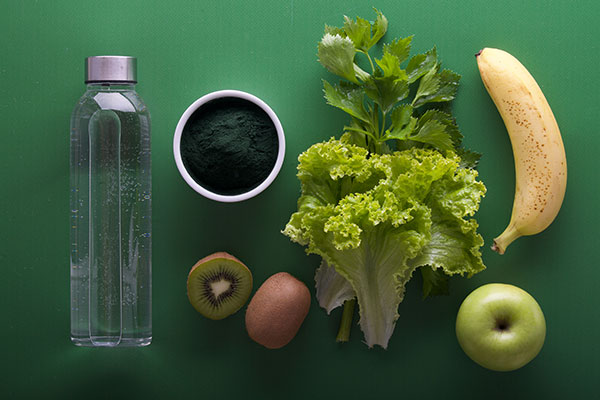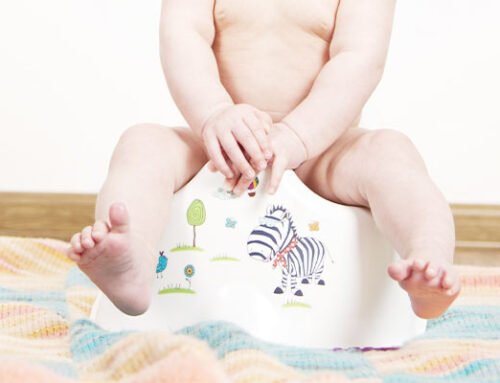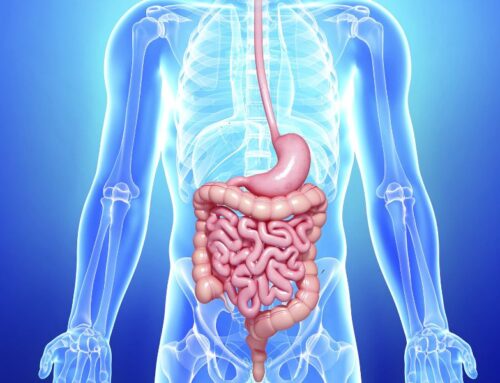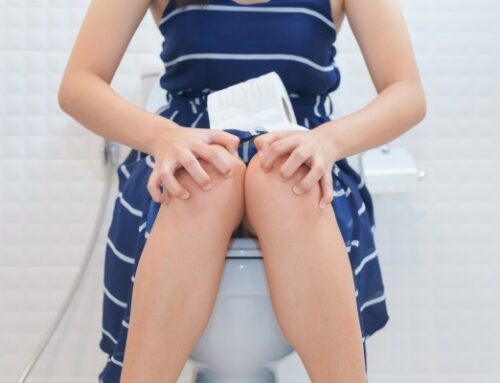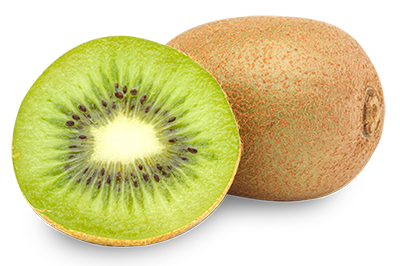Natural ways to relieve constipation
What is constipation?
Constipation is when you find it difficult to poo, or you have infrequent trips to the toilet. Ideally, bowel movements should be complete (you don’t feel like you still have more poo to come out) and spontaneous (you don’t need to use laxatives, manual manoeuvres or straining to get the poo out). If either of these isn’t the case, then you could have constipation.
Some of the symptoms you may be experiencing if you have constipation include:
- passing stools fewer than 3 times per week
- hard and lumpy stools
- a sensation of incomplete evacuation
- sensation of blockage
- manual manoeuvres to help pass stool
- straining to have a movement
If you do suffer from occasional constipation, you are not alone. Nearly everyone experiences constipation at least once in their lifetime, and chronic constipation affects up to 30% of the global population.
How often should I be going to the toilet? What is normal?
The fact is, everyone is different, and people should get to know their bowel habits to determine what their own “normal” is! In general, though, “normal” bowel regularity can be anywhere from having 3 bowel movements a week to 3 a day. So, you may poop once a day and have done so since you were little – that’s your normal – but your best friend consistently goes only a few times a week, and that’s their normal. As long as that is your usual pattern/frequency, then it is considered to be “regular” and “normal”.
But it’s not just how often you poop that determines if you have “normal” bowel movements. The shape, firmness and appearance of your stool, and how easy it is to pass them, is also important. Your poop should be soft and bulky and pass easily out the rear – you shouldn’t have to strain or feel any pain or discomfort while going. Too dry and hard can be a symptom of constipation, too watery and mushy can be diarrhoea.
The Bristol Stool Chart/Scale is a tool used by clinicians to classify poo into groups to help determine if the poo is ideal or otherwise. Ideal or “normal” stool is type 3 or 4 on the scale. Type 1 or 2 indicates constipation, and types 5 – 7 may indicate diarrhoea.
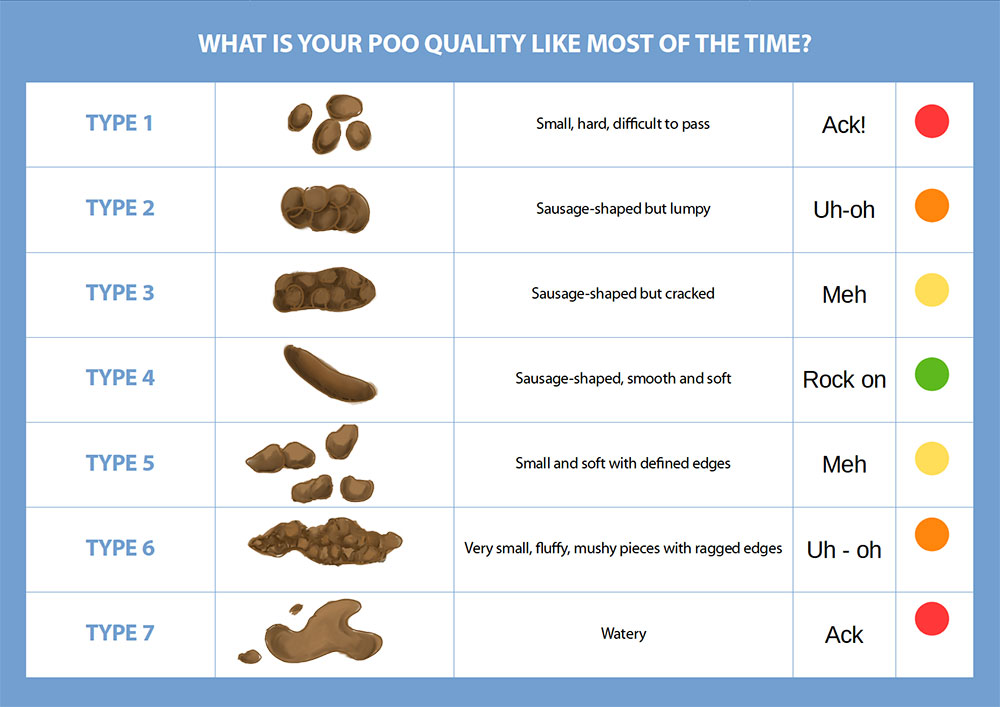
Once you start looking at your motions in the toilet, you may also notice that the colour can vary. This can also be “normal” and not necessarily cause for alarm. Poo is normally brown, largely due to the presence of bile. But what you eat can affect the colour, so if you have a green or reddish poo staring back at you, it could have been that spinach or beetroot you had for dinner recently. If you can’t attribute a colour change with something from the diet or are concerned at all about your bowel movements, then you should consult your health practitioner.
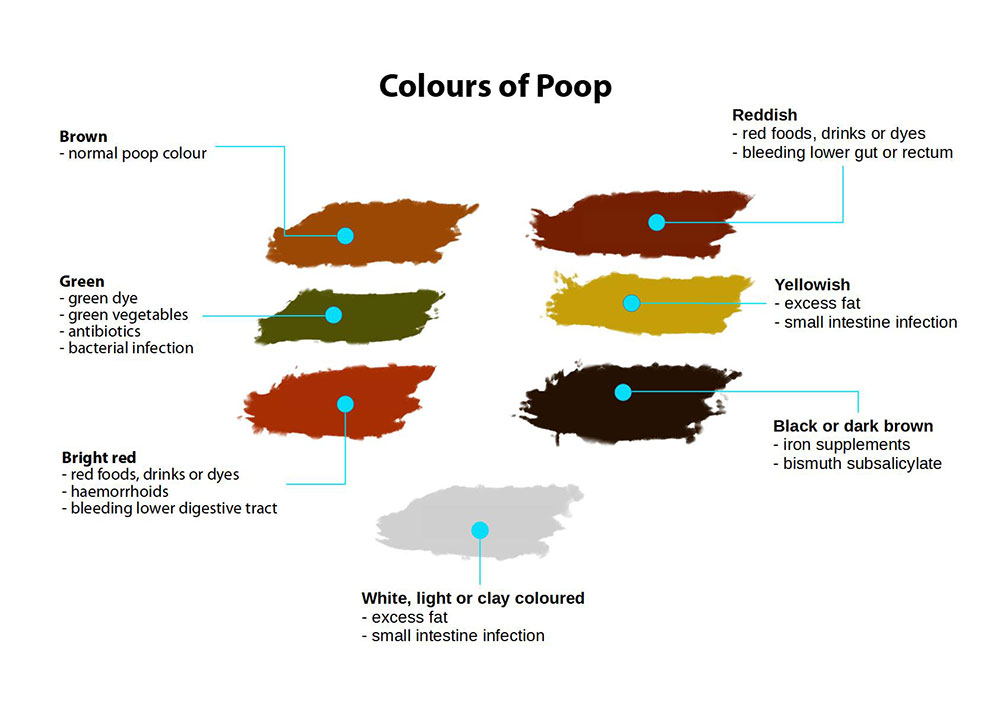
Why is it important to be regular?
The digestive system has the essential role of absorbing nutrients and excreting waste. As the old adage goes, “if you don’t poop, you die!” In reality, it’s not that simple, but the implication is there, that moving your bowels is an essential component of life.
Absorption and excretion are not the only functions the gut is in charge of. It also contributes to our immune system and interacts with our brain, affecting mood, behaviour and cognitive function.
The gut is also home to our gut microbiome, those essential microbes which help with the breakdown of food components, mainly dietary fibre. Additionally, these microbes can make vitamins, help our immune system and produce important byproducts, like short-chain fatty acids, which have a raft of beneficial functions in the body.
In short, having regular bowel movements helps to keep us happy and healthy.
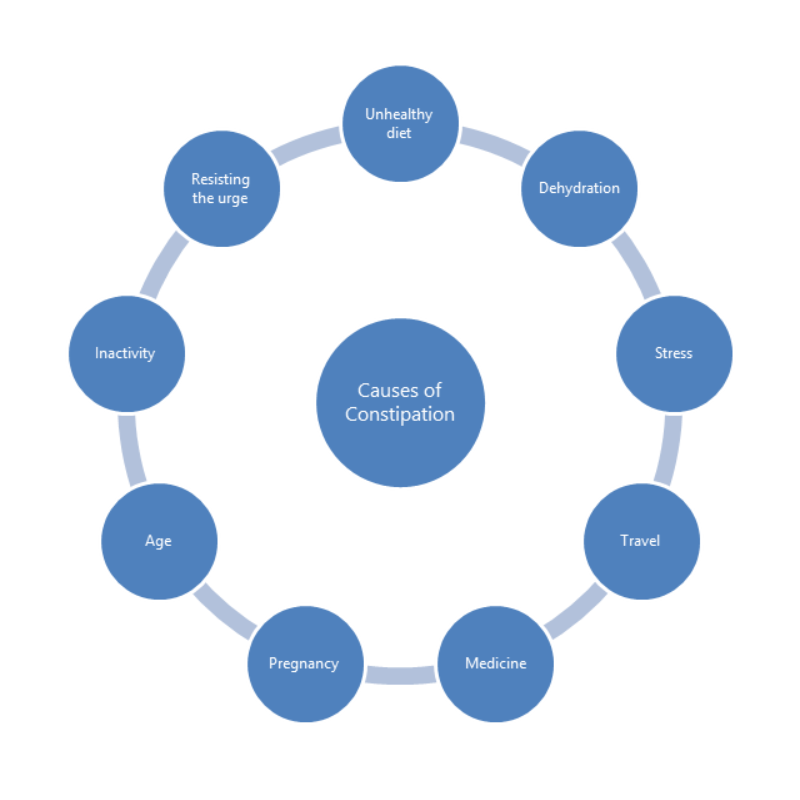
What could happen if constipation continues?
If your constipation is ongoing (chronic), then complications can include:
- Haemorrhoids – straining to have a bowel movement may cause swelling in the veins around the anus. Haemorrhoids can be painful, itchy and bleed.
- Anal fissure – a large or hard stool can cause tiny tears in the anus. Like haemorrhoids, fissures can be painful, itchy and bleed.
- Faecal impaction – an accumulation of hardened stool that gets stuck in your intestines and can’t be expelled. This can cause cramps, bloating and leakage of stool.
- Rectal prolapse – straining to have a bowel movement can cause a small amount of the rectum to stretch and protrude from the anus.
What can I do to relieve constipation and stay regular?
The remedies for relieving constipation and staying regular are one and the same. Here are some easy and natural ways to relieve constipation and stay regular.
Eat a healthy diet rich in high-fibre foods like fruits and vegetables and avoid highly processed/refined foods.
Eating a range of fruits and vegetables helps to ensure you get a good mix of soluble and insoluble dietary fibre.
- Soluble fibre soaks up water to form a gel-like material which makes your stool soft, improving consistency and that Bristol Stool Score.
- Insoluble fibre adds bulk to stool which helps to increase transit time through the gut.
Some dietary fibre is also fermented by the good bacteria in the gut. This prebiotic action leads to an increase in the abundance of bacteria (biomass) and subsequently an increase in stool bulk, and also an increase in beneficial short-chain fatty acids, which can regulate gut transit.
Whole or minimally processed fruits and vegetables, like New Zealand green kiwifruit and Actazin®, are best as they naturally contain dietary fibre and other nutrients to support happy and healthy digestive and immune systems. Kiwifruit are also great if you have IBS or a sensitive gut. Kiwifruit are a FODMAP-friendly fruit, so they are a gentle alternative to other popular fruits for constipation, like prunes – prunes contain sorbitol, a sugar alcohol/polyol, one of the “P’s” in FODMAP.
Other dietary fibres may also help, for example, psyllium. Psyllium husks are high in dietary fibre and add bulk to stools. If taking psyllium, be sure to drink plenty of water to minimize the risk of blockages and be aware of side effects such as bloating, cramping and wind.
Get moving
Being active and exercising regularly lowers the amount of time it takes for food to move through the gastrointestinal tract, effectively limiting the amount of water the body absorbs from the stool, protecting against constipation. Exercise also helps to stimulate intestinal muscle contraction, the movements which push the stool along your gut. That’s why some people find they need to go to the toilet while running!
Stay hydrated
Water helps to keep the ingested food moving along the gut and will keep your stool soft and easy to pass. Drinking 2 – 3 L a day is recommended to keep you hydrated.
Take the time to recharge and minimize stress.
Develop a regular and unhurried habit – this will help to avoid straining and stress. And yes, stress can affect your bowel habits. The gut is invariably linked to the brain, with the brain and neurological pathways affecting gut motility and the gut microbiome and its fermentation byproducts affecting our brain, including our mood, stress levels and sleep.
Don’t ignore that urge to go!
Holding on because you are too busy or until you are in the comfort of your own home can cause constipation as the poo stays in the bowel longer and more water is absorbed.
If these measures don’t provide relief to your constipation, laxatives may need to be used. Make sure you consult your health practitioner before reaching for over-the-counter solutions, though. Taking laxatives on a regular basis is not recommended and can exacerbate your constipation in the long term.


